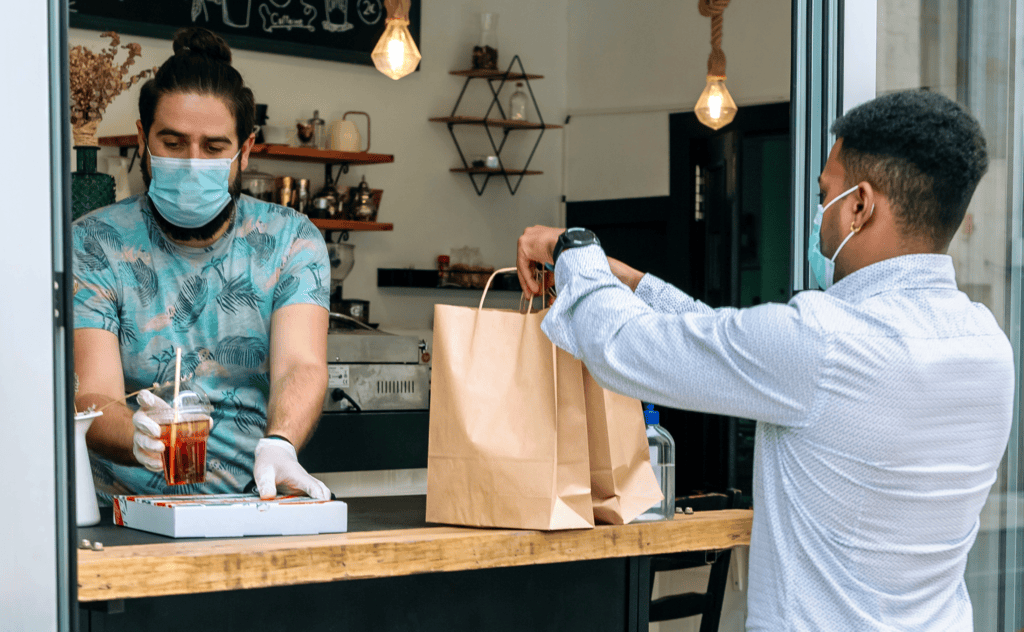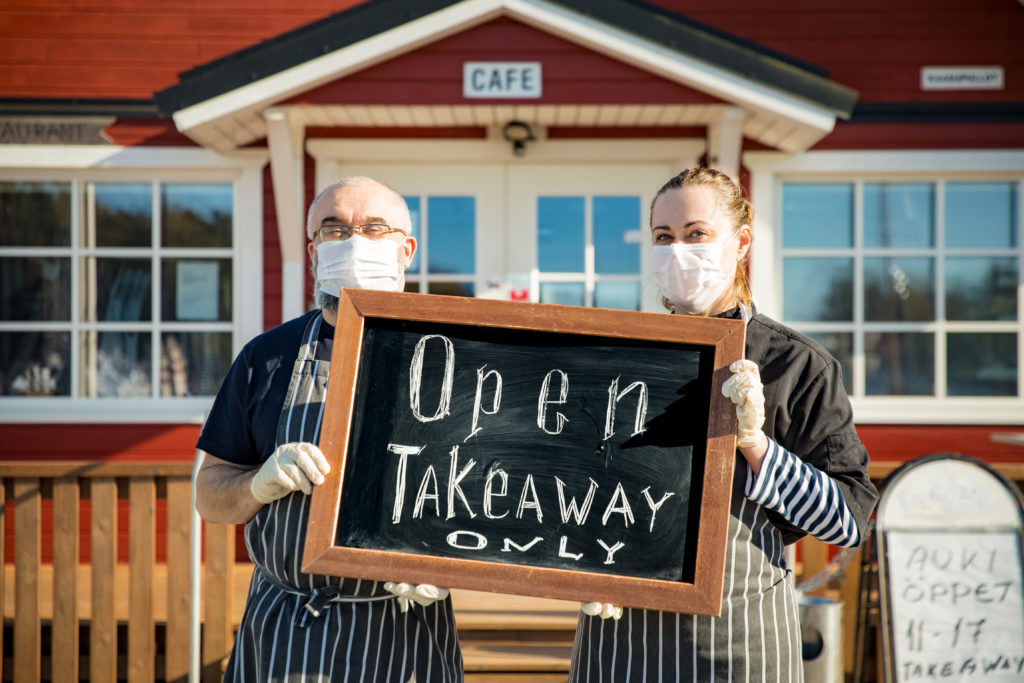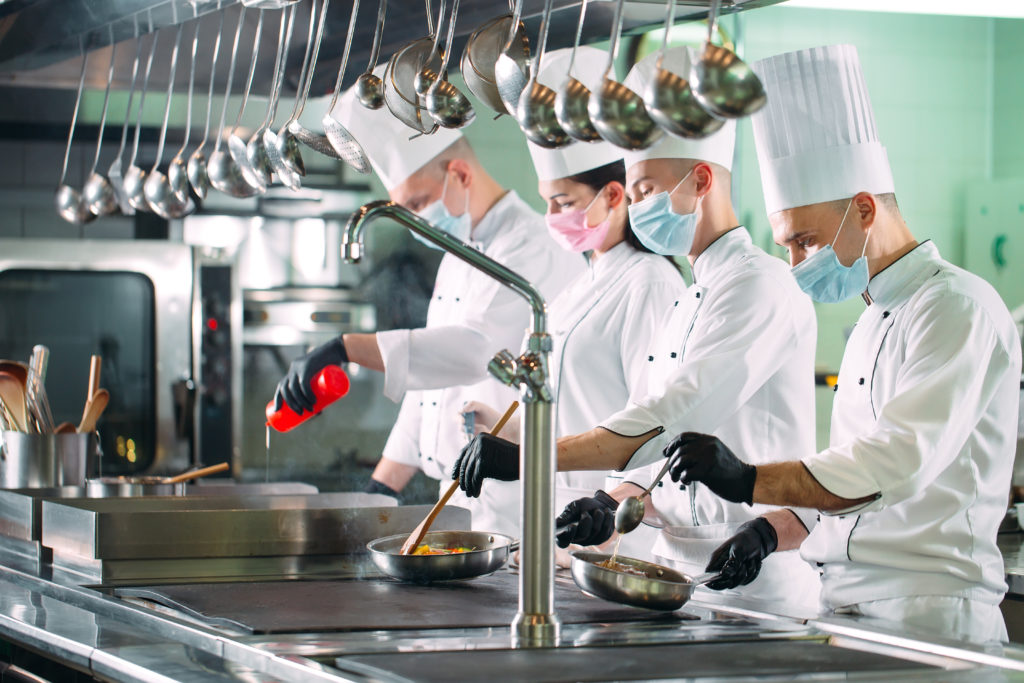Major new COVID-19 lockdown measures to combat a second wave of the virus are set to bring more challenges to restaurants, bars and cafés in an extremely difficult year for the hospitality sector.
New lockdown rules undoubtedly make things a lot harder for restaurants and pubs, but with the correct strategy, they can remain open.
Hospitality on hold: The new restrictions
UK Prime Minister Boris Johnson has announced a second national lockdown for England - a huge blow for restaurants and other hospitality businesses in the country. They will have to close all dine-in facilities for a period of four weeks from Thursday (November 5).
Meanwhile in Scotland, a new system of coronavirus restrictions has come into effect for the sector. It means a maximum of six people from two households can meet together in hospitality venues. So, while the measures are not as severe as those in England, they are still limiting.

Wales has had a firebreak lockdown in force recently, which ends next Monday (November 9), to be replaced by new rules there. Restaurants will be able to reopen, but political leaders are currently having discussions with industry leaders about the precise rules for reopening.
In Ireland, dine-in hospitality has already been halted completely for the past number of weeks. Restaurants, bars and cafés were forced to shut their doors in October when the entire country was placed on Level 5 of the government’s ‘Plan for Living with COVID-19’. Those measures are in place for a six-week period.
These sorts of restrictions are mirrored around Europe and the rest of the world, to varying degrees, as governments grapple with solutions to keep case numbers under control coming into the winter.
What can you do now? Focus on takeaway
So, in some territories, dine-in is limited, while in others it is cancelled entirely for now. And even where it is possible, precautionary measures and the pervasive fear over the virus has severely curtailed eating and drinking out in venues.
The one big saviour, as we’ve said here over the past few months, is takeaway.

Throughout the different parts of the UK, Ireland and generally around the world, delivery and collection services are being allowed to operate as normal (within safety guidelines). They are rightly treated by governments as essential services.
So, our advice has not fundamentally changed: we strongly recommend keeping your kitchen open and ramping up your takeaway efforts, through both delivery and collection.
5 practical tips for food delivery and collection
Given the circumstances and the new challenges that lie ahead, we want to give some quick practical tips and suggestions from the Flipdish team. Hopefully they can benefit you right away in preparing for the lockdown period ahead, to optimise sales.
We’ve carried out research and put together some key customer insights. So we recommend focusing on the following areas right now.
1. Introduce online ordering
Consider how you can start to provide delivery and/or collection through a website or a mobile app, which is very easy and convenient for your customers (we can help with both!). Or, if you have digital ordering in place already, switch your focus to make it your primary sales channel.

2. Communicate well with your customers
Get your key messages out to your customers quickly and directly. Use social media, SMS marketing, push notifications and email to do this. You can keep it simple by sticking to the most essential information. Let them know that you’re open for business, share your opening hours and all of the digital ordering options available to them (such as Click & Collect on your website or app), providing any key links.
3. Examine your menu
Consider optimising your menu to focus on best-selling items - this can help efficiency and ensure strong, steady sales. You can also get more creative to optimise for the takeaway market, such as offering prepared meal kits, which can really bring the traditional restaurant experience to life in your customers’ homes. Lots of restaurants have started doing this in recent weeks.
4. Adjust your opening hours
Review your opening hours and peak times. Consider adjusting your opening times to match peak demand for delivery and collection. For example, you might find that there’s an opportunity to do more sales at lunchtime in the current environment. Getting this right can also help to cut costs.
5. Focus on customer loyalty
Customer loyalty is always vital for restaurants - and now more than ever. Consider introducing a digital loyalty program to reward customers (Flipdish provides loyalty campaigns to do this effectively). You can also incentivize customers with offers for downloading your app - that can be a key driver of repeat custom. For more on how to drive loyalty, grab a copy of our customer loyalty playbook with lots of practical tips and advice.
Figuring out your next steps
These new restrictions are obviously a major challenge for the sector and may well be impacting your own business directly right now.
It can be a lot to take on board, especially with the rules and the landscape shifting unpredictably and at such a quick pace. You may be trying to figure out your next steps and the best route forward for your business. Hopefully these practical tips and insights prove useful in navigating the course ahead.

